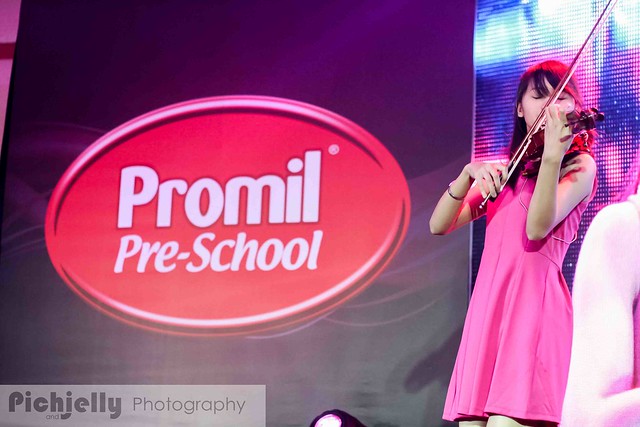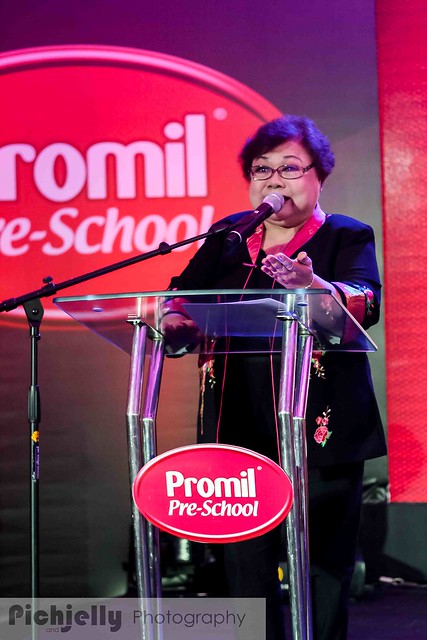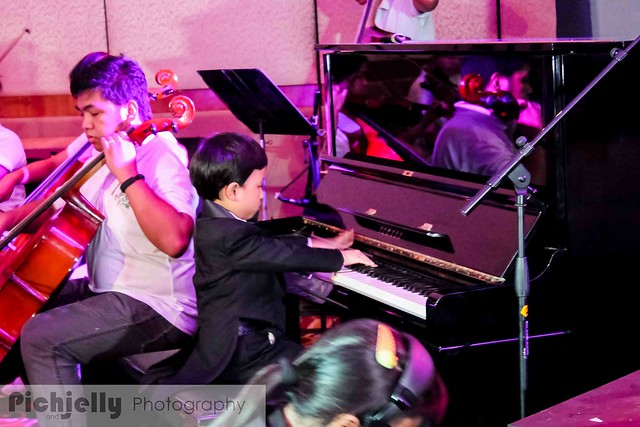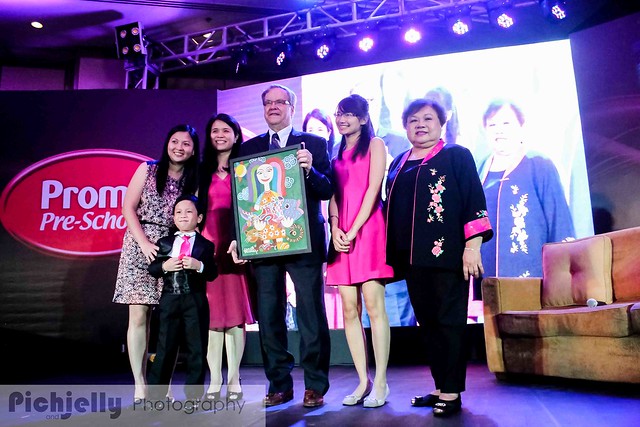Nurturing Homegrown Talents can Lead to the Country’s Success

(Ira Aclan, Violin Prodigy at age 8)
Giftedness in usually interchangeable with Talent, but to achieve a child’s full potential, it must not be so. As the two said words are distinct ideas, there are still differences that are needed to consider to better understand, realize and develop a child’s giftedness.
Oh, and if you’re thinking where the heck I got these ideas and such, it was actually from this really rad world renowned professor in terms of the field of gifted education, majoring in Phsycology, a retired professor of the same branch of education in the Universite du Quebec a Montereal, Professor Francoys Gagne. I was invited to attend Promil Preschool's A Tribute to Giftedness event last October. I also got to meet another Mommy Blogger, Michelle :D Anyways...

Prof. Gagne has devoted almost most of his life to the study of a child’s potential, giftedness and talent, thus he has founded the DGMT or the Differentiating Model of Giftedness and Talent, which was because of his very own story with his kid Victoria, who one day got bored of second grade elementary school and skipped to 3rd grade cause of, well, her potential.
DGMT is the theory that is identified and used by international educational authorities, and according to the said theory, (in simpler terms of course) Giftedness is actually the POTENTIAL, the natural aptitude placed among say, top 10% of their age group, and Talent is the ACHIEVEMENT, the exceptionally well developed giftedness or skill.
But enough about that, cause here are 4 things to consider to help you on the track to develop your child’s own giftedness.
- There are actually certain catalysts or factors to consider to help develop said giftedness, and it branches out into 2 types. Intrapersonal Catalysts and Environmental Influences.
- Intrapersonal Catalysts include:
- Perseverance(Willpower and self Control)
- General Curiosity(openness for all kinds of knowledge)
- Intrinsic Motivation(Love for learning)
- Extrinsic Motivation(Ambition to become the best)
- Environmental Influences include:
- Family(Support and Supervision)
- School(quality of teaching)
- Quality of peer group(peers to orient interest and habits)
- Most Important thing to remember is that Nature(giftedness/potential) and Nurture(investment of time, energy and or money) should work together. It has been a sad misconception that with being gifted, you wouldn’t need to give it much support cause well, “magaling na siya eh”. But that should not be the case since Giftedness and Talent never flourish on their own. Remember that talent is not achieved within a mere number of hours, days or months, cause as we say, practice makes perfect. And another important factor is the effort into perfecting said skill by remembering mistakes and repeating and repeating the corrections.

As per Dra. Letty Ho, who is the president of the Philippine Center for Gifted Education said, “Nurturing the potentially gifted is a shared responsibility of the family, as well as both public and private sectors if they are to be developed maximally.”
While we are talking about giftedness and talents, we might was well delve in to how by nurturing these homegrown talents can lead to the country’s success.
Professor Françoys Gagné, Ph. D, emphasizes that “individuals, young and old, differ in many respects: their aptitudes or potentialities, their personal qualities, their needs and their interests, their will-power and their perseverance, their investment in time and energy in the development of their talents, the characteristics of their social environment, and the qualities of significant people around them. All these elements can contribute to a person’s level of professional success; they are the ingredients of outstanding success, in school and in adult life.”

(Sage Araneta, Composer at age 4)
Basically, by celebrating said homegrown talent and skill that we have, Giftedness and talent could be a driving force for the Philippine economy to continue the steps it is taking towards becoming a progressive country. Nurturing homegrown talent can benefit the country greatly by spurring its development.
Professor Gagné’s visit to the Philippines could not come at a more opportune time, with the Philippine Center for Gifted Education, Inc. bidding to spearhead the establishment of the ASEAN Association for Giftedness, and the country showing strong economic growth.
Heritage Through Generations
For over 25 years, Promil Pre-School has been an advocate of nurturing Filipino children’s gifts into talent. With the right balance of support from parents, proper care through the right learning environment, and proper nutrition from Promil Pre-School, gifts can be nurtured into exceptional talents that benefit a larger community.

“We are one with Professor Gagné in promoting the proper nourishment of children’s gifts to become talents. This is one of those instances where proper education can really make the world of difference,” says Dian Yu, Product Manager, Wyeth Nutrition, Inc.
From National Hero Dr. Jose Rizal to Andrea Veneracion, who gave the world the Philippine Madrigal Singers, to world-class performer Lea Salonga and boxing champion and politician Congressman Manny Pacquiao, Filipinos whose gifts were developed into talents have proven to contribute immensely to the advancement of the country and building of national pride.
“This is a vision that Promil Pre-School shares with Professor Gagné. The brand was founded on the premise of making it easier for people to reach their full potentials and become gifts not just to themselves or their families, but also to their community. We believe that well-rounded and fully-developed talented individuals are those who are able to use their exceptional abilities for the greater good,” adds Yu.








No comments